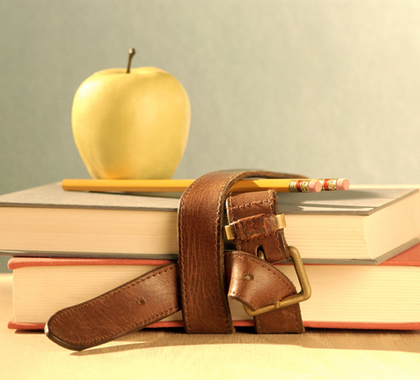Legislation introduced in the West Virginia Senate would establish a nearly-universal education savings account (ESA) program in the Mountain State. If passed, ESAs would be available to families with a child currently enrolled in a public school and have an annual household income under $150,000. The accounts would pay for tuition and fees at private and parochial schools and could also be used to pay for tutoring services, transportation costs, educational software, online courses, dual-enrollment courses, and educational therapies and services.
Additionally, the ESAs could be used to cover the fees required to take national standardized achievement tests, such as the SAT and ACT. The funding amount of each account would be equivalent to 90 percent of the amount allotted per pupil under the school aid formula. Leftover funds could be rolled over for use in subsequent school years and would be available to help pay for tuition at postsecondary schools.
Copious empirical research on school choice programs finds they offer families improved access to high-quality schools that meet their children’s unique needs and circumstances. Moreover, these programs improve access to schools that deliver quality education inexpensively. Additionally, these programs benefit public school students and taxpayers by increasing competition, decreasing segregation, and improving civic values and practices.
Research also shows students attending private schools are less likely than their public school peers to experience problems such as alcohol abuse, bullying, drug use, fighting, gang activity, racial tension, theft, vandalism, and weapon-based threats. There is also a strong causal link suggesting private school choice programs improve the mental health of participating students.
It is probably for these reasons that ESAs are more popular with parents than ever before. The results of EdChoice’s seventh annual Schooling in America survey, released in October 2019, found 77 percent of respondents favor ESAs, up 3 percentage points from 2018. According to the survey, support for ESAs is 80 percent among Millennials, 78 percent for those with incomes under $40,000 a year, 78 percent for blacks, 79 percent for Hispanics, 78 percent among self-identified Democrats, and 77 percent among independents. Furthermore, 78 percent of public school teachers surveyed support ESA programs.
These findings are mirrored in the American Federation for Children’s sixth-annual National School Choice Poll, released in January 2020, which saw 80 percent support for ESA programs. More specifically, a February 2017 poll conducted by the Cardinal Institute for West Virginia Policy found 56 percent of respondents are in favor of an ESA program in the Mountain State. Forty-eight percent said they think public schools are either “poor” or “failing.”
The school a child attends should not be determined solely by his or her ZIP code. However, this is currently the case for most West Virginia children. The goal of public education in the Mountain State today and in the years to come should be to allow all parents to choose which schools their children attend, require every school to compete for every student who walks through its doors, and make sure every child has the opportunity to attend a quality school.
The following documents provide more information about education savings accounts and education choice.
The 123s of School Choice
https://www.edchoice.org/wp-content/uploads/2019/04/123s-of-School-Choice.pdf
This report from EdChoice is an in-depth review of the available research on private school choice programs in America. Areas of study include: private school choice program participant test scores, program participant attainment, parent satisfaction, public school students’ test scores, civic values and practices, racial/ethnic integration and fiscal effects.
West Virginia and Education Savings Accounts
https://www.cardinalinstitute.com/app/uploads/2016/09/WV_ESA_Study_091916-1.pdf
This study by the Cardinal Institute for West Virginia Policy, published in September 2016, concludes West Virginia would benefit from the implementation of education savings accounts (ESAs). The study also explores the impact of ESA programs in states such as Arizona and details how a similar program would improve the Mountain State’s education system.
A Win-Win Solution: The Empirical Evidence on School Choice (Fourth Edition)
http://www.edchoice.org/wp-content/uploads/2016/05/A-Win-Win-Solution-The-Empirical-Evidence-on-School-Choice.pdf
This paper by EdChoice details how a vast body of research shows educational choice programs improve academic outcomes for students and schools, saves taxpayers money, reduces segregation in schools, and improves students’ civic values. This edition brings together a total of 100 empirical studies examining these essential questions in one comprehensive report.
2019 Schooling in America Survey: Public Opinion on K–12 Education, Busing, Technology, and School Choice
https://www.edchoice.org/wp-content/uploads/2019/10/2019-9-Schooling-in-America-by-Paul-Diperna-Andrew-Catt-and-Michael-Shaw-1.pdf
This annual survey from EdChoice reports polling results based on a nationally representative sample of the general public, with more robust samples of parents, current public school teachers, Millennials and Generation Z than in previous editions. The survey asks standard questions about schooling experiences and educational choice reforms, as well as hot-button K–12 subjects that seem to polarize lawmakers and advocates, including inter-district busing, teacher protests and children’s use of technology.
Child Safety Accounts: Protecting Our Children through Parental Freedom
https://heartland.org/wp-content/uploads/documents/CSAccountsPB.pdf
In this Heartland Policy Brief, Vicki Alger, senior fellow at the Independent Women’s Forum and research fellow at the Independent Institute, and Heartland Policy Analyst Tim Benson detail the prevalence of bullying, harassment, and assault taking place in America’s public schools and the difficulties for parents in having their child moved from a school that is unsafe for them. Alger and Benson propose a Child Safety Account program, which would allow parents to immediately have their child moved to a safe school – private, parochial, or public – as soon as parents feel the public school their child is currently attending is too dangerous to their child’s physical or emotional health.
The Public Benefit of Private Schooling: Test Scores Rise When There Is More of It
https://object.cato.org/sites/cato.org/files/pubs/pdf/pa830.pdf
This Policy Analysis from the Cato Institute examines the effect increased access to private schooling has had on international student test scores in 52 countries. The Cato researchers found that a 1 percentage point increase in the share of private school enrollment would lead to moderate increases in students’ math, reading, and science achievement.
The Effects of School Choice on Mental Health
https://papers.ssrn.com/sol3/papers.cfm?abstract_id=3272550
This study from Corey DeAngelis at the Cato Institute and Angela K. Dills of Western Carolina University empirically examines the relationship between school choice and mental health. It finds that states adopting broad-based voucher programs and charter schools witness declines in adolescent suicides and suggests that private schooling reduces the number of times individuals are seen for mental health issues.
Competition: For the Children
https://heartland.org/publications-resources/publications/competition-for-the-children
This study from the Texas Public Policy Foundation claims universal school choice results in higher test scores for students remaining in traditional public schools and improved high school graduation rates.
Nothing in this Research & Commentary is intended to influence the passage of legislation, and it does not necessarily represent the views of The Heartland Institute. For further information on this subject, visit School Reform News, The Heartland Institute’s website, and PolicyBot, Heartland’s free online research database.
The Heartland Institute can send an expert to your state to testify or brief your caucus; host an event in your state; or send you further information on a topic. Please don’t hesitate to contact us if we can be of assistance! If you have any questions or comments, contact Heartland’s government relations department, at [email protected] or 312/377-4000.




